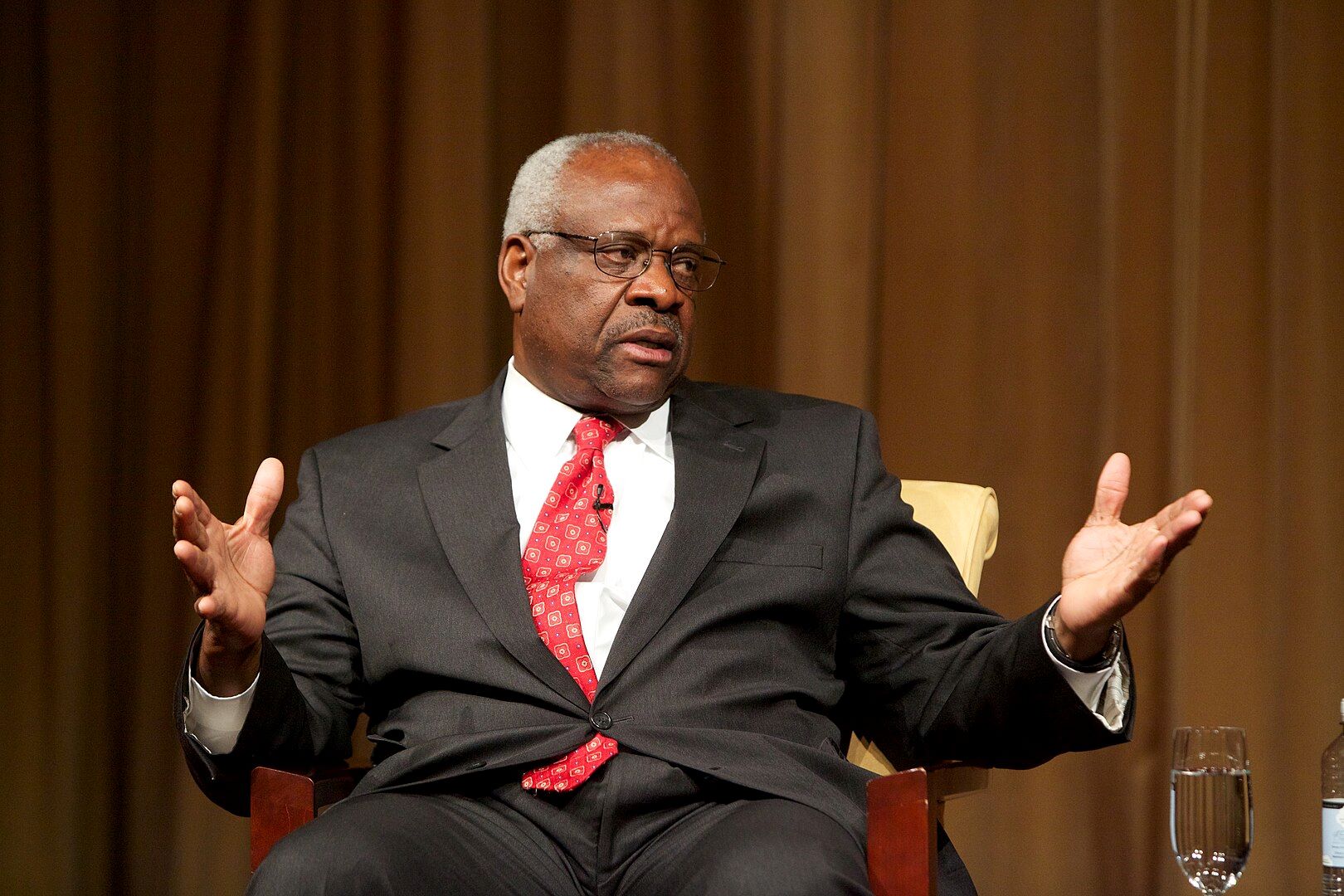WASHINGTON (CN) — A pair of congressional Democrats demanded Tuesday that the U.S. Judicial Conference explain how it’s responding to revelations that Supreme Court Justice Clarence Thomas again neglected to report gifts of travel from a wealthy conservative benefactor.
In documents published last week, the Senate Judiciary Committee said that Thomas — already under scrutiny for similar conduct — omitted three trips on a private jet owned by billionaire businessman Harlan Crow on annual financial disclosure documents.
The unreported travel, which occurred between 2017 and 2021, was discovered in a trove of documents provided by Crow to the committee as part of a deal in which lawmakers agreed to end their investigation into the conservative megadonor.
Democrats have pointed to the three undisclosed flights as more evidence of an ethics crisis in the Supreme Court.
Thomas recently amended his 2019 disclosure reports to reflect several other previously unreported gifts provided by Crow, but the flights revealed by Senate Democrats do not appear. The justice, through an attorney, argued last week that the information disclosed by Crow fell under the court’s so-called “personal hospitality exemption” for financial reports.
Although the Judicial Conference updated that provision last year, Thomas’s lawyer argued, he was not required to amend past disclosure statements to include those three flights.
But lawmakers have told the Judicial Conference, the judiciary’s chief policymaking body, that the justice’s defense doesn’t hold any water.
In a letter to the Conference dated Tuesday, Rhode Island Senator Sheldon Whitehouse and Georgia Representative Hank Johnson demanded that the Judicial Conference definitively state that its decision to require justices to disclose gifts of travel has no statute of limitations, as suggested by Justice Thomas.
“[W]e urge you to clarify that is indeed what you meant,” wrote Whitehouse and Johnson, “as Justice Thomas has declared it a ‘new rule,’ allowing him to avoid amending past misfilings.”
The 1978 Ethics in Government Act, which governs financial disclosures, “has long been understood to require gifts of travel to be disclosed,” the lawmakers said, “because transportation is not listed in the ‘personal hospitality’ definition and therefore can never be considered ‘statutory’ personal hospitality.”
The lawmakers also asked the Judicial Conference whether it had already taken any action to address the existing discrepancies in Thomas’s financial disclosure reports — and if it had determined whether the justice’s omissions were willful.
Further, Whitehouse and Johnson demanded to know whether Thomas was “advised that amending his disclosures for 2019 would end the inquiry into whether reasonable cause exists to believe any omissions were willful.”
The Judicial Conference’s cooperation on the issue will help inform lawmakers’ understanding, as well as “the potential need for a legislative response,” they said.
Thomas has been embroiled in controversy for over a year after reports emerged that the justice had failed to disclose luxury vacations on Crow’s dime. The revelations sparked a firestorm among congressional Democrats, who demanded that the Supreme Court establish a binding code of ethical standards for its justices.
Although the high court last year agreed to enact such a code, lawmakers and judicial experts have said that it doesn’t go far enough — pointing out that it lacks a solid enforcement mechanism.
Instead, Democrats have held up Whitehouse’s Supreme Court Ethics, Recusal and Transparency Act as a potential antidote. If made law, the measure would require the court to draft a binding ethics code and make it available for public comment. The bill would also stand up an independent review board that would adjudicate ethics complaints against the justices.
But Democrats were dealt a setback last week, when Republicans blocked an attempt to pass Whitehouse’s bill via a Senate process known as unanimous consent. Lawmakers, though, have said the fight to force an ethics reckoning at the Supreme Court is far from over.
Meanwhile, it’s not just Thomas that has found himself in the congressional crosshairs over ethical malfeasance. Justice Samuel Alito has also come under fire amid reports that he neglected to disclose gifts paid for by conservative legal advocate Leonard Leo.
The Senate Judiciary Committee earlier this year authorized a subpoena against Leo for information related to his relationship with the justices. Leo, founder of the conservative Federalist Society, has said he will not comply with the summons — and Senate Republicans have urged him not to.
Subscribe to Closing Arguments
Sign up for new weekly newsletter Closing Arguments to get the latest about ongoing trials, major litigation and hot cases and rulings in courthouses around the U.S. and the world.









